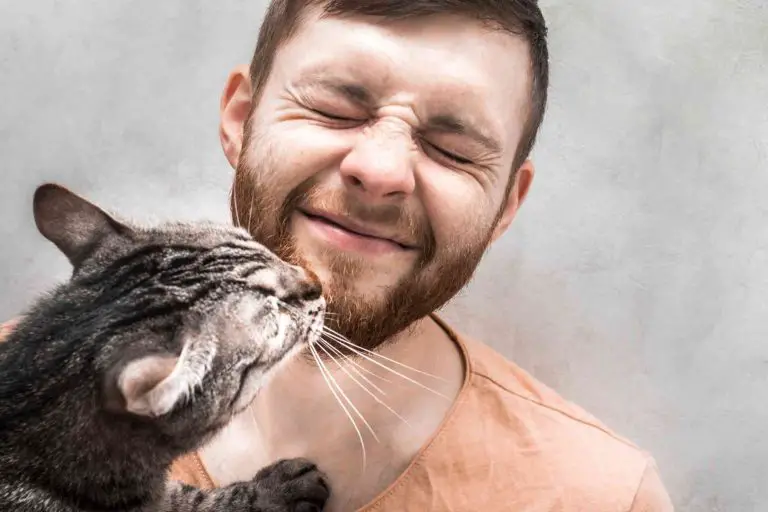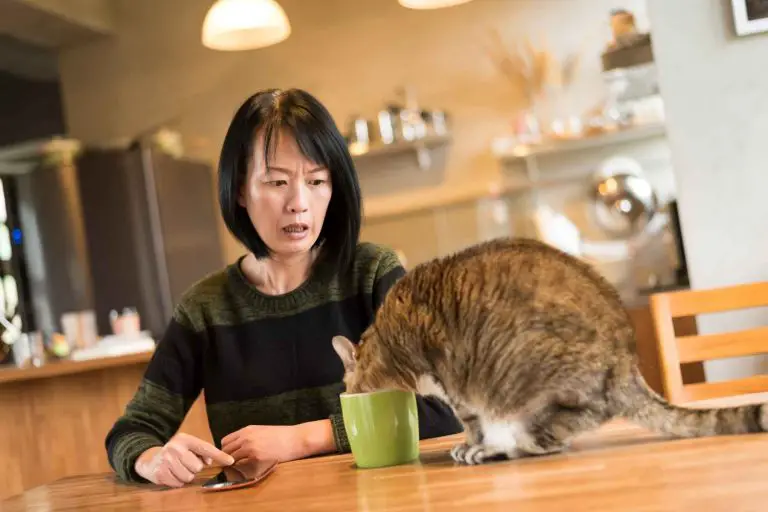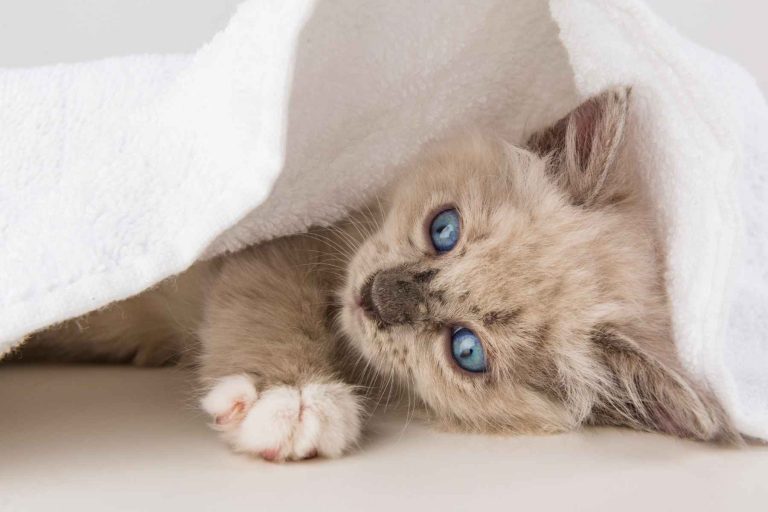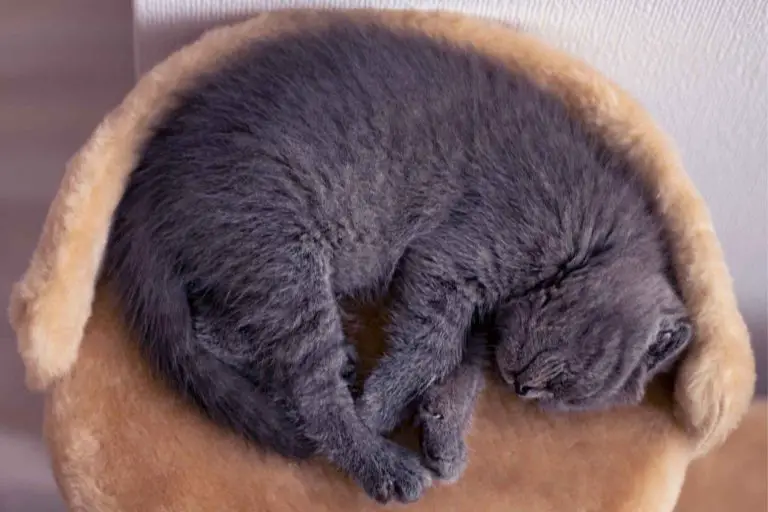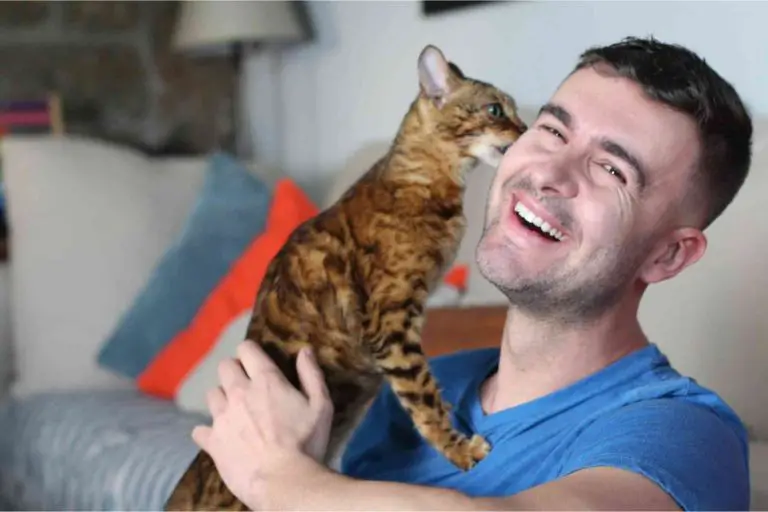Do Cats Fart When They Are Scared?
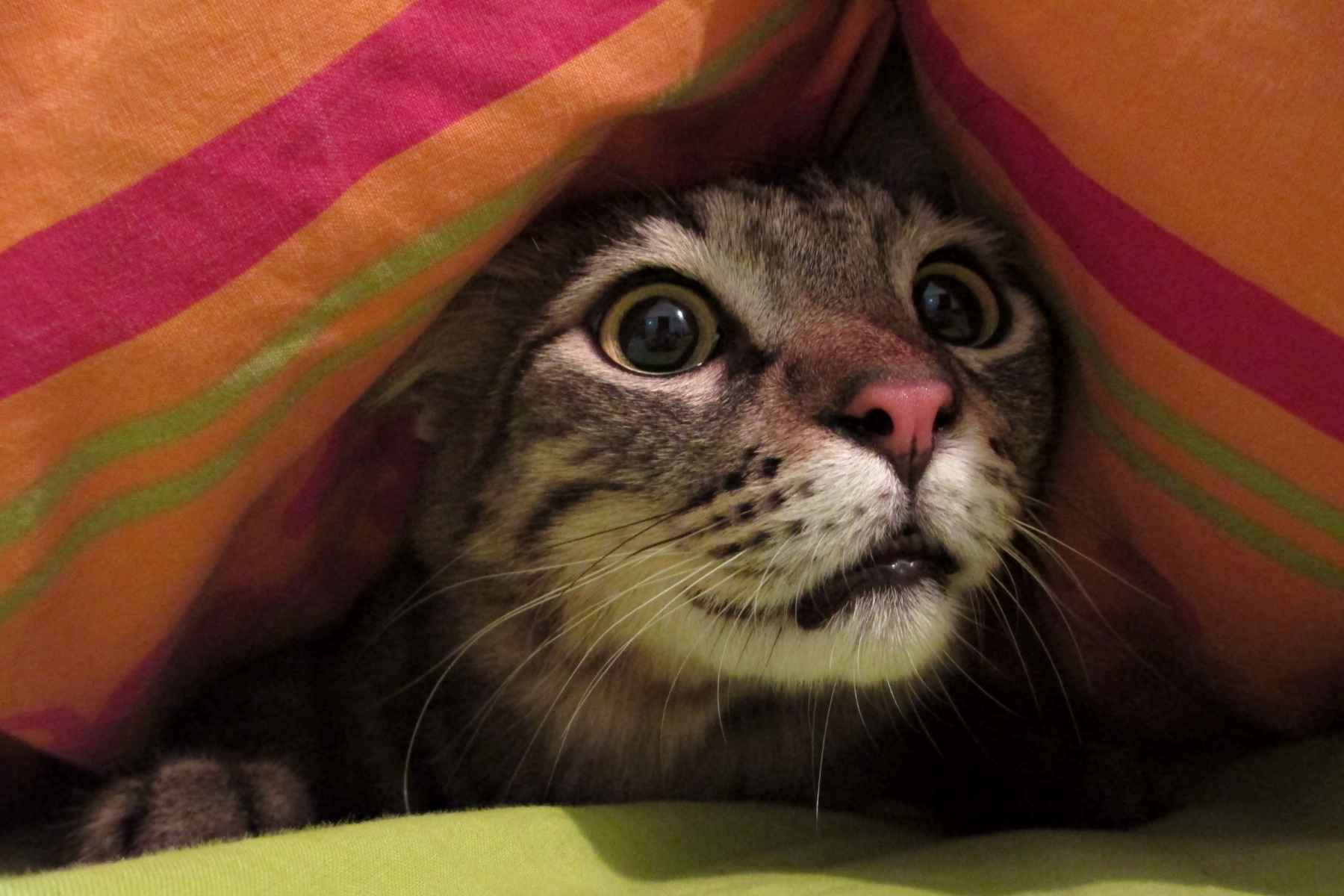
Cats are mysterious creatures with ways that often mystify their human owners. It can be a little challenging to understand everything about them.
It may sound like an odd topic for discussion, but many people are confused about cat flatulence and whether or not it happens specifically when they are scared.
Yes, cats may fart when they are scared. However, it’s important to note that cats do not only fart when they are scared, nor is it guaranteed that they will fart when they are afraid or anxious.
It is simply a potential outcome that may occur when a cat is scared, and there are many determining factors at play.
It may sound like an odd thing to talk about, but considering that you generally don’t want cat flatulence to be a regularly occurring part of your daily life, it pays to know about things like this.
The more you know about your cat, the better. You will be able to take care of your feline friend better if you understand more about their body: even this part.
That’s why we’ll be discussing cats and their impetus for farting and why it can sometimes be a result of them getting scared or anxious.
It’ll be a bit of an odd ride, but hopefully, you’ve evolved past elementary school level humor enough to read about it with a straight face.
Do Cats Fart? What Causes It?
This may sound like an odd question, but you’d be surprised how many people doubt whether or not certain animals pass gas.
To some, farting seems like a primarily human experience, but then again, those people probably aren’t spending tons of time observing animals and learning their biological processes.
In short, yes, cats fart. Not only that, but the reasons they fart are pretty similar to the reasons humans do. Like us, cats tend to fart when there is excess gas in their intestines that needs to be expelled. The reason for the excess gas doesn’t really matter: it’s often a matter of what the cat had to eat, though allergies can sometimes be the culprit as well.
Also, like humans, cats may have particular food allergies or sensitivities that may cause bloating or excessive gas. Imagine that one co-worker who gets a bit gassy whenever they eat beans: this kind of thing can also happen to a cat. Some foods may cause more flatulence than others.
Either way, just know that it is normal for a cat to fart, despite how much it harms its prim and proper image. It’s a natural bodily process that promotes physical health. Of course, excessive flatulence could indicate a problem, but we’ll discuss that in greater detail later.
Cats, Farts, and Fear
OK, so we know that cats pass gas. We also know that, most of the time, it’s the usual bodily process of having a bit too much gas in the intestines and just letting some of it out.
But what about fear? Do cats fart specifically when they are scared? If so, why? What purpose does it serve? Well, there’s an important thing to understand first.
There is no direct relation between fear and a cat fart. That is to say, a cat is not guaranteed to fart just because it is scared. It’s just something that might happen when a cat is scared.
Your cat may jump, screech, flee, or hide when frightened, and it may fart too. It’s just a possibility, not an intended biological response.
Even so, fear and anxiety can lead to farts in a roundabout kind of way. Have you ever gotten that ‘butterflies in the stomach’ feeling before something you were nervous about?
Did it make you gassy, nauseous, or give you upset stomach? When fearful or nervous, adrenaline tends to inspire this reaction in one’s guts.
This can happen to cats as well. A fearful or anxious cat might let loose more flatulence than usual. Some cats even urinate or poop when scared, if they already had to.
Adrenaline can cause the bowels to do some weird things, but how animals (and people) react to it varies. Some cats might get gassy, while others may not.
What Causes Excessive Farting in Cats?
If you’ve noticed that your cat is farting more than it used to, or you’ve just noticed that it is farting a lot, don’t worry: it’s probably not because your cat is frightened all the time.
There are many other, far more likely explanations for why your cat has so much gas. Some of them might be of actual concern, so observe carefully.
Dietary Causes
We mentioned this earlier already, but a cat’s diet is usually the most crucial part of its digestive health. If your cat is farting a lot, it may have something to do with its food.
Even if you are feeding your cat typical cat food from the store, that could be the source of the problem. It depends on what cat food you get.
For instance, some cat food, generally the cheapest kind, is made up of very little meat and a lot of grain to serve as filler.
Many cats are grain intolerant, and eating large amounts of grain can give them indigestion and stomach issues, such as increased flatulence. Be wary of the type of cat food you provide for your feline friend.
Eating Too Quickly
Odd as it sounds, eating very quickly can lead to excessive farting. When you eat quickly, don’t chew much, and swallow often, you get a lot more air in your stomach than during a slower-paced meal where one takes their time.
This is true for cats, just as it is for humans. A cat that eats at a rapid pace may fart more often.
Of course, there isn’t much you can do to stop your cat from eating at the speed it wants, but there are other factors you can control to affect this.
For instance, you can feed your cat smaller amounts per meal (less food to eat, less swallowing to do, less air inhaled to pass later), or you can invest in specially designed bowls that slow down a cat’s pace.
Eating Unsuitable Human Food
Humans and cats eat very different things in most cases. And yet, many owners let their cats eat things that weren’t meant for them.
One of the most popular options is milk. Lots of people are convinced that cats love a saucer of milk. And sure, they do, but in the same way humans love many things that are bad for them.
Most cats are lactose intolerant. That means their body cannot properly digest lactose, a significant component of most dairy products.
The inability to digest that enzyme means that cats who drink milk are likely to expel extra gas compared to the norm. Overall, it’s best to let your cat stick to cat food and water.
Illnesses or Parasites
Illnesses or parasites could also potentially cause more flatulence in your cat, but it can be hard to tell if this is the root of the problem.
To try and determine if such a cause is the culprit, you’ll likely need to observe other factors.
Have you fed your cat anything different lately? Have they been eating their food like they normally do? Has their behavior changed? Do they seem lethargic or irritable?
If you can’t trace your cat’s extra flatulence to one of the other causes, it might be the safest option to take them to the vet and get a professional opinion.
Defensive Mechanism
Some people believe that cats might fart as some sort of reactionary defensive mechanism, much like a skunk sprays its horrendous smell in dangerous situations.
This is not true. You’re not going to see a cat intentionally farting to try and defend itself, be it from a threat or unwanted attention.
The reason some people believe this is likely because they’ve picked up an irritable cat who reacted badly and happened to fart along the way. This would likely be due more to pressure on the cat’s bowels than anything else.
Summary
So, now you know more than you probably wanted about cats and their flatulence. They do fart and may fart when they are scared, though that is more likely due to adrenaline than any direct relation between fear and farting.
If you notice that your cat is farting far more than usual, the most likely culprit is changing its diet.
Make sure your cat gets quality cat food with low amounts of grain and lots of protein, and don’t feed them milk or other human food. If you feel that they are sick, which could cause increased flatulence, take them to a vet.


